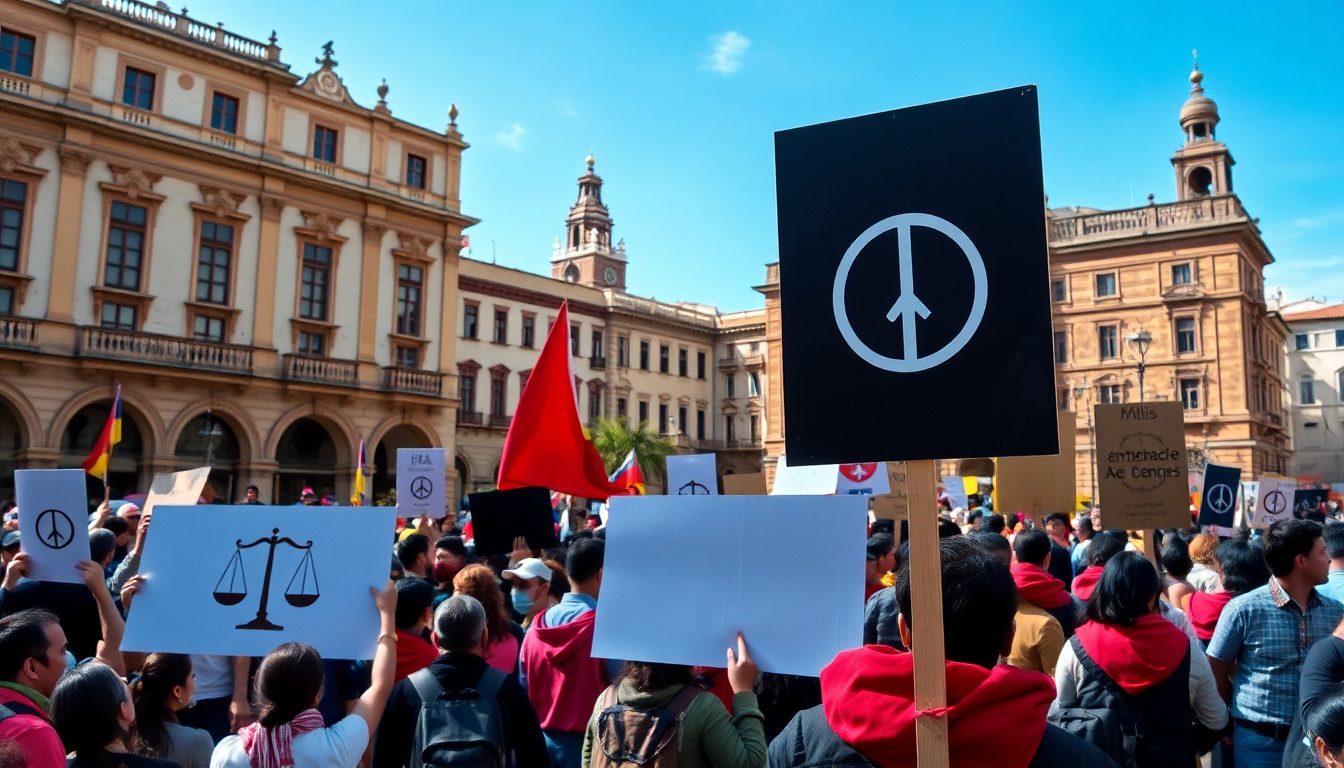Table of Contents
The recent passage of an amnesty law in Peru has sparked a wave of criticism from human rights advocates and representatives of victims. This legislation aims to absolve military and police personnel of crimes committed during the country’s armed conflict from 1980 to 2000. But many see it as a serious blow to justice and accountability. Legal experts and advocates argue that this new law not only undermines the rights of victims but also hinders the ongoing quest for truth surrounding the atrocities of the past. Isn’t it crucial to hold those responsible accountable?
Legislative Background and Implications
The Peruvian Congress recently approved a bill that grants amnesty to members of the armed forces, national police, and local self-defense committees. This decision has ignited fierce opposition, especially from lawyers representing victims of human rights abuses. Gloria Cano, the director of the Pro Human Rights Association, made it clear that they are ready to challenge the law, both within Peru and at international human rights bodies. But what does this mean for the future of justice in Peru? The implications are profound, potentially erasing numerous convictions and obstructing over 600 active prosecutions related to human rights violations.
Volker Turk, the UN’s national human rights coordinator, expressed his concerns on social media, stating, “impunity does not hide the crime; it magnifies it.” This sentiment resonates with Amnesty International, which has urged lawmakers to prioritize the rights of victims over the proposed amnesty. The organization warns that the new legislation could violate the rights of thousands who have suffered from extrajudicial executions, forced disappearances, and torture. How can society move forward when the past remains unaddressed?
Historical Context of Human Rights Abuses in Peru
Peru’s armed conflict lasted two decades and resulted in a staggering death toll of around 70,000 people, mainly among Indigenous communities caught between state forces and insurgent groups like the Shining Path. The Truth and Reconciliation Commission highlighted the immense suffering endured by these communities, revealing over 4,000 clandestine graves scattered throughout the nation. With such a painful legacy, the passage of the amnesty law feels particularly contentious. How can we ignore the lessons of history?
The law’s introduction by Congressman Fernando Rospigliosi, affiliated with the right-wing Popular Force party, has also raised eyebrows. Critics contend that this legislation not only protects those currently accused of crimes but also shields those who may have committed atrocities in the past. With President Dina Boluarte remaining silent on the issue, many are left wondering about the government’s commitment to human rights and accountability. What message does this send to those seeking justice?
Potential Challenges and International Response
Legal analysts suggest that this amnesty law could face significant challenges, particularly given Peru’s obligations under international human rights treaties. The Inter-American Court of Human Rights has previously declared similar amnesty laws invalid, emphasizing that they violate the right to justice. Human rights advocates argue that the current law undermines Peru’s constitutional commitments and could lead to further legal battles in international courts. Will Peru’s actions contradict its international responsibilities?
The passage of this legislation occurs amidst ongoing efforts to shield military and police personnel from prosecution for past abuses. However, civil society organizations and international bodies have historically shown resilience in opposing such measures. The situation is fluid, and many are closely monitoring how the legal landscape continues to unfold. Can the voices of victims and advocates make a difference in the fight for justice?
As the debate continues, the voices of victims and human rights advocates remain crucial in the quest for justice in Peru. The future of this amnesty law, along with its broader implications for human rights in the country, hinges on the response from both domestic and international communities. Will they stand up for what is right?


